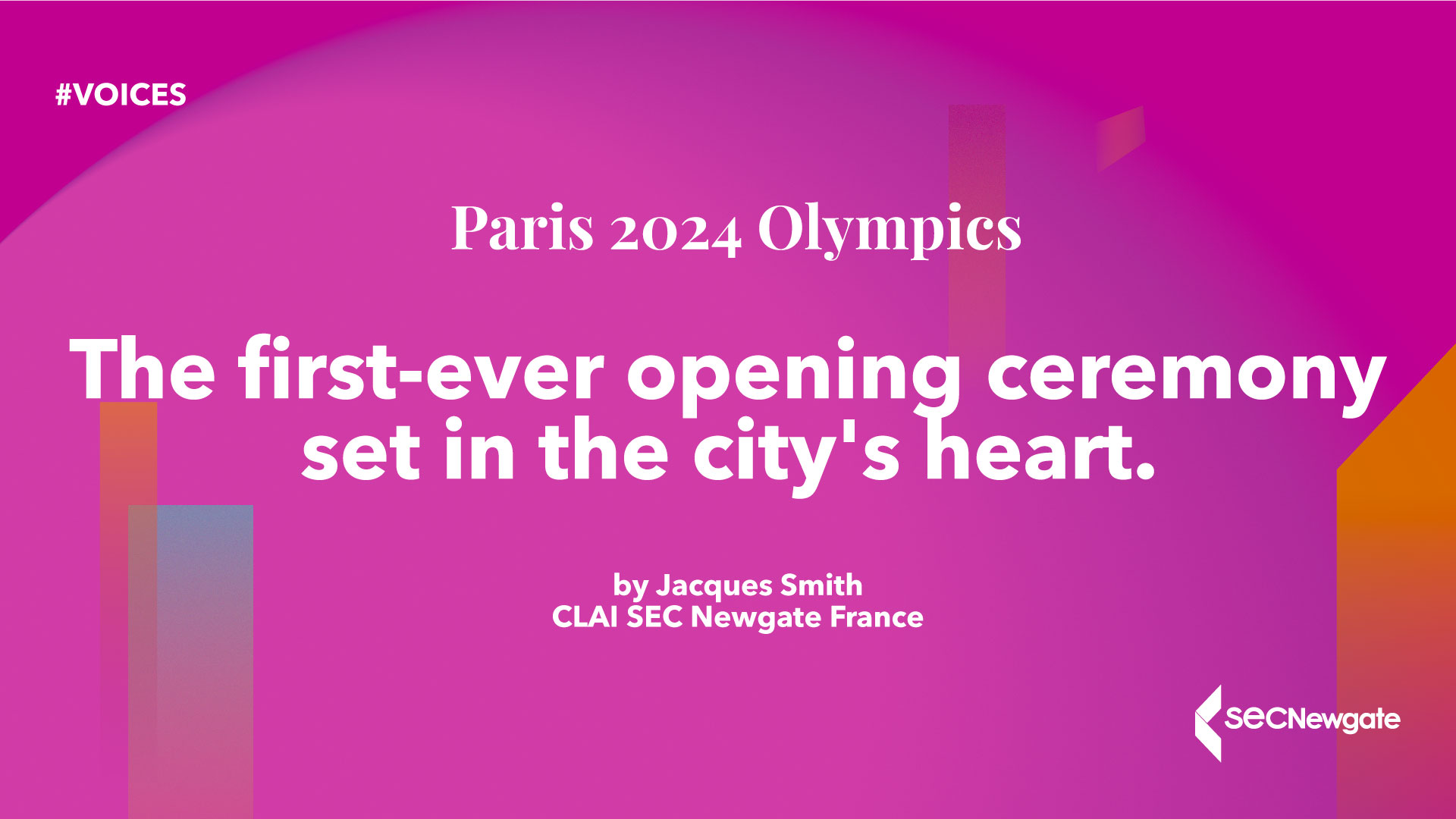About the Author
July 26, 2024.
Throughout the history of sport, there are dates that remain etched in our memories. In France, July 12 1998 is remembered as the day that the French football team became world champions on home soil at the Stade de France in Paris. In recent Olympic history, the humour and creativity of the 2012 London opening ceremony, or the breathtaking choreography of Beijing in 2008 stand out as key moments in sporting history.
But what will be said about July 26 2024 – the opening ceremony of the Summer Olympics in Paris? After a century-long wait and the disappointment of not hosting the Games in 2008 and 2012, expectations were high. It was essential to make a significant impact. So, three years ago when Tony Estanguet, President of the Organising Committee for the Games, announced a unique ceremony that would take place outside a stadium for the first time in the history of the Games, all dreams were possible.
Would this bold gamble pay off? It was an extraordinary challenge in terms of organisation and security: parading 15,000 athletes along the Seine and through the city on a 6km-long route, in front of over 300,000 people. Some called it a “crazy idea,” pointing to the recklessness of staging such a spectacle “in the city” at a time of international tension and increasing terrorist threat. A plan B, plan C, and even a plan D were absolutely necessary!
In early June, President Macron’s decision to dissolve the National Assembly sent shockwaves throughout the organising committee. Many observers deemed this decision – and its timing, just weeks before the Games – completely inopportune. The country was more divided than ever, with dangerously polarised debates and a new Assembly composition preventing the appointment of a new government. Thus, the Games and its opening ceremony represented a huge hope for respite and unity.
On Friday evening at 7:30pm, as tradition dictates, the Greek delegation opened the parade at Pont d’Austerlitz under a majestic plume of blue, white and red smoke. It might have been pouring, but the excitement of experiencing an historic moment prevailed in the minds of the tens of thousands of spectators gathered along the banks of the Seine.
If there were still doubts about the host country’s identity, the first part of the spectacle dispelled them effortlessly. French clichés followed one after the other: the accordion player was there, as was Serge Gainsbourg. Lady Gaga, the first international star, then made her entrance surrounded by a troupe of the famous French Cancan dancers. The Moulin Rouge was not left out either. Gaga’s rendition of Zizi Jeanmaire’s “Un truc en plumes” was received with huge applause, while behind the scenes, 45,000 law enforcement officers secured the perimeter, and the Parisian airspace was shut within a 150-kilometer radius.
To many, France also means Notre-Dame de Paris, and 2024 marks the year of its reopening to the public after the terrible fire five years ago. So, when its reconstruction was depicted by a stunning performance with hundreds of dancers on the Île de la Cité, one could not help but be moved.
Other great Parisian monuments were also honoured: the Conciergerie and the French Academy were the theater of daring performances, with Marie-Antoinette beheaded amid a burning façade and Aya Nakamura leading the Republican Guard in dance. The Grand Palais was the setting for a vibrant and majestic Marseillaise on its rooftops, offering a few memorable minutes. Johnny Hallyday and Daft Punk accompanied the last boat, Le Paquebot, proudly hosting the largest delegation France has ever sent to the Olympics, in an electric atmosphere.
Then came the “final show” at the Trocadéro, featuring an impressive laser spectacle. The President of the Republic, with the Iron Lady adorned in her Olympic rings as a witness, declared the XXIII Olympic games of the modern era officially open. The last torchbearers took turns on the Seine and its banks, following an itinerary that lovers of the city would certainly have appreciated. Fans of French sports saw their idols take part in the last meters of the mythical Olympic torch: from Zinedine Zidane to Tony Parker, Amélie Mauresmo to Laure Manaudou. A particular highlight was the passing of the torch to Charles Coste, Olympic champion in 1948 in London and now 100 years old. The best-kept secret of the ceremony was then revealed, with our triple Olympic champions Teddy Riner and Marie-José Pérec lighting the cauldron, before a giant hot air balloon rose into the Paris sky. As a grand finale, returning four years after her last public performance, Céline Dion sang Édith Piaf’s “Hymne à l’amour” on the Eiffel Tower, in a moment of grace and beauty that many consider the most striking of the ceremony.
“Magical,” “legendary,” “timeless,” “memorable,” “extravagant,” – the adjectives follow one another for an opening ceremony that will go down in history as the first to be held “in the city.” The international press admired the technical feat, blending history and artistry in an universally recognised “French style.” The greatest of all time? The Spanish daily Marca decides and headlines: “The best ceremony in history.” Although this judgment was challenged by the protests of the Catholic Church against certain scenes deemed blasphemous, sparking a new controversy that spread from Eastern Europe to the United States, between magic and scandal, collective memory will ultimately decide …
